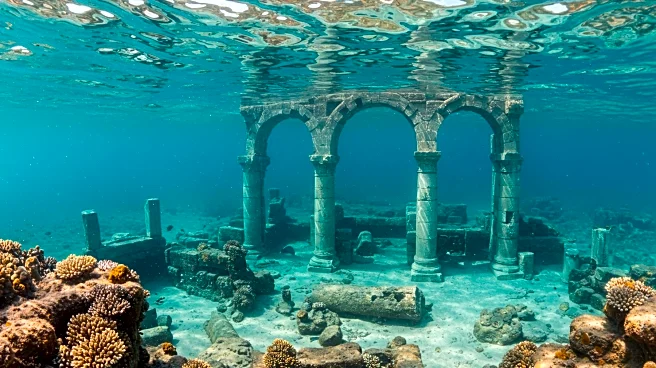What is the story about?
What's Happening?
Egyptian authorities have unveiled parts of a sunken city off the coast of Alexandria, believed to be an extension of the ancient city of Canopus. The site, submerged in Abu Qir Bay, includes buildings, artifacts, and an ancient dock dating back over 2,000 years. The city was a prominent center during the Ptolemaic dynasty and Roman empire but was submerged due to earthquakes and rising sea levels. The discovery includes limestone buildings, statues, and a merchant ship, offering insights into ancient urban life and trade.
Why It's Important?
The retrieval of artifacts from the sunken city provides valuable information about ancient Egyptian civilization and its interactions with other cultures. It highlights the impact of natural disasters on historical sites and the challenges of preserving underwater heritage. The discovery contributes to understanding the Ptolemaic and Roman periods in Egypt, influencing archaeological research and tourism in the region.
What's Next?
Further exploration of the site may uncover more artifacts and structures, enhancing knowledge of ancient Canopus. Researchers will continue to study the retrieved items to understand their historical significance and cultural context. The findings may lead to increased efforts in underwater archaeology and heritage preservation.
Beyond the Headlines
The discovery underscores the vulnerability of coastal cities to climate change and rising sea levels, drawing parallels to modern challenges faced by Alexandria. It highlights the importance of integrating environmental considerations into heritage management and urban planning.















